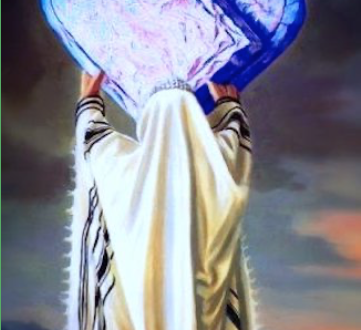Mary, a joyful bondservant
Luke 1:26–38 forms part of the lectionary readings for the fourth Sunday of Advent, which is December 20th. As with last week’s passage, the present focus is on Mary, the mother of Jesus.
As previously noted, for around four centuries, God’s voice through the prophets had been silent in Palestine. The Roman army had nearly crushed the Jews’ hopes that the promised Messiah would come to deliver them from their overlords. Many undoubtedly wondered whether God had forgotten His people.
In the first century AD, the Jews enjoyed limited political and religious freedom. Roman administrators had appointed the civil and religious leaders of Judea.
When small groups of zealots tried unsuccessfully to fight against foreign occupation, the Roman military quickly and brutally subdued their revolts. The average ethnic Jew found few reasons to be optimistic about the future.
For all that, at the divinely appointed time, the Creator sent the archangel, Gabriel (whose name means “strong man of God,” “God is strong,” or “God is my warrior”), to a young woman named Mary (the Hellenized form of the Hebrew name, Miriam, whose name means “obstinacy” or “rebelliousness”). She lived in the obscure village of Nazareth and was engaged to a man who was descended from King David (Matt 1:1, 16; Luke 1:26–27).
Long before the first and third Synoptic Gospels recorded the events surrounding Mary and Joseph, the Old Testament foretold what Gabriel would announce to Mary. For instance, the prophets identified the place of the Messiah’s birth (Mic 5:2), along with the time (Dan 9:25) and the person—not Mary by name, but that the Messiah would be miraculously conceived in the womb of a virgin (Isa 7:14).
For the above reason, Luke 1:27 is careful to emphasize Mary’s virginity, even before introducing her by name. From a theological perspective, Jesus’ virginal conception is essential to His deity, and likely was foreshadowed in the primordial garden located in Eden.
Specifically, the Creator told the Satan-inspired serpent that Eve’s “offspring” (Gen 3:15) would one day “crush” the serpent’s “head.” This judgment oracle previewed the Messiah’s ultimate victory over Satan, sin, and death (Rom 16:20).
In ancient Near Eastern cultures, descendants were usually traced through their fathers. Yet, the unique designation of Eve’s “offspring” (or “descendants”; literally, “seed”; Gen 3:15) implies that the Messiah would have no human father.
The preceding observation explains why, in Luke 3:23, the author clarified that Jesus was only “thought to be the son of Joseph.” For the same reason, in 1:32, Gabriel emphasized to Mary the identity of her virginally conceived child as the divine Son and biological descendant of David (2 Sam 7:16; Pss 2; 89:3–4, 20–37).
As noted above, at the time of Gabriel’s appearance to Mary, she was pledged in marriage to Joseph (Matt 1:18). For Jewish women at this time, betrothal could occur as early as 12 years old. Also, the period of engagement normally lasted for about a year.
The heavenly emissary had good news to declare to Mary. The Greek verb rendered, “highly favored” (Luke 1:28), means the Creator had singled out Mary for a special blessing. (Some Greek manuscripts add, “Blessed are you among women.”) Through her yet-to-be-born child, God would bestow His saving grace upon many repentant, believing sinners.
Paul used the same Greek verb in Ephesians 1:6. There, in reference to the Father’s gift of grace in baptismal union with the Son, the term is rendered “freely bestowed” or “lavished.”
The above observation suggests that to be highly favored conveys more than just the presence of grace. It is to be inundated with God’s special kindness (see the phrase in John 1:16, “grace on top of grace”).
Gabriel’s salutation alarmed Mary (Luke 1:29). Indeed, the presence of the angel must have felt unexpected and perplexing to the young woman.
It is helpful to remember that, given Mary’s cultural context, it was strategic for Gabriel to speak with Mary before she became pregnant. After all, because she was a virgin, her pregnancy would cause her distress and expose her to public shame.
Additionally, Mary would have no idea who could be the father of the child. Thankfully, God sent Gabriel to prevent any lingering fears and anxieties that Mary might continue to experience (v. 30).
Gabriel revealed to Mary that she would give birth to a son, whom Mary would name “Jesus” (v. 31). In Jewish culture, a child’s name was supposed to indicate the essence of his or her personality.
As previously noted, “Jesus” is the Greek form of the Hebrew name, Yeshua, or “Joshua,” which means “Yahweh saves” (Matt 1:21). The Father would use Mary’s virginally conceived Son to deliver the lost from their iniquity and the scourge of death.
It was pointed out above that Isaiah 7:14 foretold of a “virgin” (or young, unmarried woman) conceiving and bearing a son. Jesus would be that child, the miracle of His conception being possible because He would also be the “Son of the Most High” (Luke 1:32). Furthermore, Mary’s firstborn would fulfill the ancient prophesy about the person who would rule on David’s throne (Isa 9:6–7).
In the first millennium BC, God promised David that his kingdom would be established forever (2 Sam 7:16; 1 Chron 17:14). In fact, David’s descendants reigned over Judah until the Exile (586 BC).
Gabriel’s reference to the “throne of his father David” (Luke 1:32) meant that God was about to restore the broken line of David’s succession. Indeed, the angel disclosed to Mary that her son would fulfill that promise by reigning “forever” (v. 33).
While Mary was greatly honored to bear the Messiah, most people in her culture would misunderstand the nature of her pregnancy. Out of ignorance, people would assume Mary had been promiscuous (including, at first, Joseph; Matt 1:18–19).
Given this context, Mary asked the obvious question (Luke 1:34). How could she, a virgin, who had never been physically intimate with any man, become pregnant?
Undoubtedly, Gabriel anticipated Mary’s confusion, for the angel was prepared to explain the Creator’s oracle to the teenager. She learned that Jesus would need not a man to father Him. After all, the Spirit would rest upon the Son’s birth mother (Matt 1:20; Luke 1:35), while the glorious presence of the Father, like a cloud, would envelop Mary (Exod 40:34–35; Ps 91:4).
At that moment, Mary would become the Creator’s human instrument in Jesus’ incarnation. Because He eternally is the “Son of God” (Luke 1:35), He is holy.
The preceding statement means more than mere dedication to the Father. Jesus, as the second Person in the triune Godhead, became a human being in space-time history.
Unlike Zechariah, Mary did not ask Gabriel for a sign. Even so, the angel pointed toward evidence of the Creator’s power already at work. Gabriel mentioned Mary’s relative, Elizabeth, who had long been barren, but now miraculously was in the sixth month of her pregnancy (v. 36).
Gabriel assured Mary that what was revealed to her would assuredly take place, for “nothing” (v. 37) was “impossible” for the Creator to do (or, “no word from God will ever fail”). Human promises sometimes come to nothing, especially when people lack the resources or inclination to keep their pledges. In contrast, the Creator always fulfills what He declares (Isa 59:1).
Mary’s humble response (“See, I am the Lord’s female slave”; Luke 1:38) affirms God’s wisdom in choosing the young woman to be Jesus’ mother. Many disturbing questions possibly ran through the teenager’s mind.
Nevertheless, Mary did not argue with the angel. Instead, the adolescent submitted to the Creator when He gave His bondservant a sacred responsibility.
As stated above, both Mary and Zechariah asked Gabriel about what God promised to do in their respective lives. The difference in their queries seems to be that Mary asked how her conception was possible (v. 34), whereas Zechariah (evidently in doubt) asked how he could be certain the angel’s declaration would take place (v. 18).
Put differently, Zachariah asked for a tangible confirmation, which Gabriel granted in the form of the priest’s muteness. Contrastingly, Mary inquired how she, a virgin, could become pregnant.
The angel, in response, explained that the Spirit’s glorious presence would come to rest upon the teenager. Even though she did not fully comprehend every aspect of Gabriel’s announcement, Mary in faith accepted God’s pledge that the young woman would bear the Christ child.
Key ideas to contemplate
At first glance, Mary seems to have been an unexpected candidate to be used for one of God’s greatest works. After all, Mary was a nonentity in her society.
Mary also had three strikes against her in the patriarchal, elitist culture of her day. Specifically, she was young, poor, and female. In addition, she lived in Nazareth, a seemingly unimportant provincial village (John 1:46).
The above factors notwithstanding, Mary willingly embraced her God-given responsibility to bear and give birth to the Messiah. Mary’s example encourages us to resist the temptation to feel like worthless nobodies when God gives us a task to perform.
When believers seek to please the Creator, willingness can be more important than having cognitive prowess and amazing talent. Indeed, the validation of a Christian’s love for and devotion to the Savior is faithful obedience.
Mary’s heart was so focused on God, His greatness, and His goodness, that the teenager ceased to be worried about how difficult her path would be by her unanticipated pregnancy. We, too, can choose to respond as Mary did to the challenges of serving the Creator in the ways He makes known to us.
Humbly submitting to the Lord is not like visiting a smorgasbord. We can’t select those items we like and leave the rest. Even though undertaking whatever God desires isn’t always easy, He wants us to accept His will, just as Mary and Elizabeth did in their own respective ways.
Of course, the best example of submission is how the Son willingly did all that the Father desired. For instance, while praying on the Mount of Olives, Jesus did not complain about the prospect of having to die on a cross. Instead, He completely accepted His redemptive mission (Luke 22:42; Heb 12:2).
Regardless of the responsibility the Father gave the Son throughout His earthly sojourn, He humbly submitted. Likewise, we who truly believe in the Redeemer should strive to do what He desires in every area of our lives.



